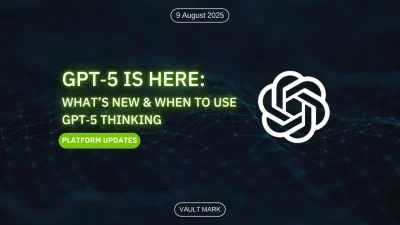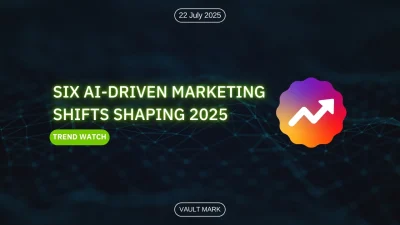Key Takeaways (today)
- Atlas & Pulse: OpenAI’s ChatGPT Atlas (browser with agent mode) and ChatGPT Pulse frame the move to assistant-first browsing; agent tasks run with page context, intensifying the need for pages that are short, citable, and trustworthy. OpenAI+1
- Edge–Copilot: Mainstream tech press underscores Microsoft’s push toward Copilot-centric browsing, accelerating chat-first discovery patterns. theverge.com
- SEO Pulse: No new incidents in Google’s Search Status Dashboard within the last day; visibility continues to shift toward answer inclusion rather than classic blue-link ranking. status.search.google.com
- Security Watch: A Verge report warns that AI browsers raise prompt-injection and memory risks—relevant for governance and legal teams. theverge.com
- Ops Notes: Cloudflare lists rolling maintenance windows (Oct 31–Nov 1 UTC among them); annotate analytics to avoid false alarms. cloudflarestatus.com
Today’s Quick Actions
- Pick 3 revenue pages and harden their opening summaries (2–3 lines: claim, eligibility, constraints) for assistant-safe citation; then book Vault Mark’s GEO Audit.
- Add author/date/source boxes to those pages to improve excerptability and trust.
- Create an analytics annotation for Cloudflare windows in affected regions. cloudflarestatus.com
- For governance: circulate the AI-browser risk brief to security/legal; restrict agent memory where sensitive workflows are involved. theverge.com
SEO Pulse — Search signals (executive brief)
Google’s Search Status Dashboard shows no qualifying incident in the last 24 hours—no new core/ranking disruptions beyond the public history (March & June core updates; August spam update). That absence of “hard” signals does not offset the structural shift: discovery increasingly happens inside assistants and AI modes. Leadership should read “visibility” as being quoted or summarized in an answer surface rather than holding a particular blue-link slot. status.search.google.com+1
Cross-industry snapshot:
- Retail: Product/category intros that summarize availability, shipping, warranty, and differentiators in the first screen are more “assistant-ready.”
- Health/Clinic: Plain-language fit/contraindications/outcome lines increase safe excerptability.
- Travel/Hospitality: “This week/tonight” benefit blocks feed time-sensitive answer cards.
- B2B SaaS & Logistics: Above-the-fold definitions of roles, SLAs, and integration scope help assistants resolve who/what/where without scrolling.
Measurement watch: AI-era traffic can blur into standard Search reporting; establish assistant-native artifacts (policy pages and one-page PDFs with dates and owners) so references are attributable when assistants cite your brand. Pair this with a GEO Audit to inventory entity consistency and third-party mentions on your primary sales pages. status.search.google.com
GEO Pulse — Brand citation focus
OpenAI’s ChatGPT Atlas formalizes the “assistant browser” model: ChatGPT reads context across tabs and, in agent mode, can take actions while you browse (preview for Plus/Pro/Business). ChatGPT Pulse complements this with proactive update streams. For brands, these experiences favor short, source-anchored narratives that an agent can safely quote. Think executive-grade definitions, eligibility notes, and externally verifiable claims—published on primary sales pages and backed by official references. OpenAI+1
Cross-industry implications:
- Retail: Single-page category briefs mapping models to use cases (budget, eco, size).
- Clinics: “Who it’s for / Not for / Expected outcomes” blocks with links to official bodies.
- Hospitality: Weekly package pages with live inclusions rather than generic copy.
- B2B SaaS/Logistics: Solution overviews with diagrams and integration matrices for quick citation.
Run a GEO Audit on pricing, solution, and booking/contact pages to standardize definitions, evidence, and entity data for assistant-safe citations
AEO — Becoming the answer
No new AEO-specific guideline in the last 24 hours; however, Google’s quality documentation has been updated this year to reflect generative answer experiences, implicitly rewarding pages that declare scope and constraints up front. In practice, “answer UX” means the first screen should resolve: what this is, who it’s for, limits/contraindications, and where evidence comes from. This is not a how-to recipe; it’s credibility-weighted framing built for safe quotation. status.search.google.com
Executive angle: Ask your team to produce 5 “answer fragments” (each 1–2 sentences) per priority page that match real buyer questions in your categories. Those fragments should be identical across EN/TH and aligned to the entities you control in Local/Organization schema. Validate with a GEO Audit before peak season.
AI Platform Updates
- OpenAI: ChatGPT Atlas is a macOS browser with ChatGPT at its core; agent mode can open tabs and act with browsing context (safeguarded and opt-in). Pulse debuted earlier as proactive updates (initially on mobile) and frames a future of assistants that start work. OpenAI+1
- Microsoft: Coverage emphasizes Edge’s Copilot-forward direction, bringing cross-tab summarization and early agentic tasks to the browser mainstream. Expect more users to treat the address bar as an assistant rail. theverge.com
Tools & Tech Alerts
- AI-browser security: The Verge flags prompt-injection and memory/credential risks as AI features land in browsers; coordinate with security/legal to set guardrails (e.g., restricting agent memory on sensitive properties, human-in-the-loop for logins). theverge.com
- Cloudflare maintenance: Rolling windows (e.g., Oct 31–Nov 1 UTC for select POPs) can nudge latency and skew short-interval tests. Add annotations in analytics and avoid reading too much into minute-level swings. cloudflarestatus.com
Trend Watch — Where discovery starts
This week marks a clear pivot toward assistant-as-browser: OpenAI’s Atlas, Microsoft’s Copilot-first Edge, and newsroom attention on AI-browser safety. The winner is the brand that is easiest to quote responsibly—short, precise, and externally verifiable—on its primary sales pages. Plan content and budgets around journeys (not single keywords), then pressure-test measurement to capture assistant-driven influence alongside classic SERP clicks. OpenAI+2theverge.com+2
FAQ
1) Does Atlas change our SEO approach?
It changes where discovery happens. Assistants compile answers from sources they trust. Your edge is being the named source with concise, verifiable claims on primary pages. OpenAI
2) Should we shift budgets out of Search now?
Don’t cut blindly. Assistant surfaces overlay Search rather than replace it. Keep brand/category coverage and re-weight measurement for assistant-assisted paths. theverge.com
3) What about security/governance?
Adopt an AI-browser policy (limit agent memory on sensitive workflows, require human approval for credentials) and brief teams on prompt-injection risk. theverge.com
4) Fastest uplift?
A GEO Audit on three primary sales pages to align definitions, evidence, and entity signals for assistant-safe citation.







